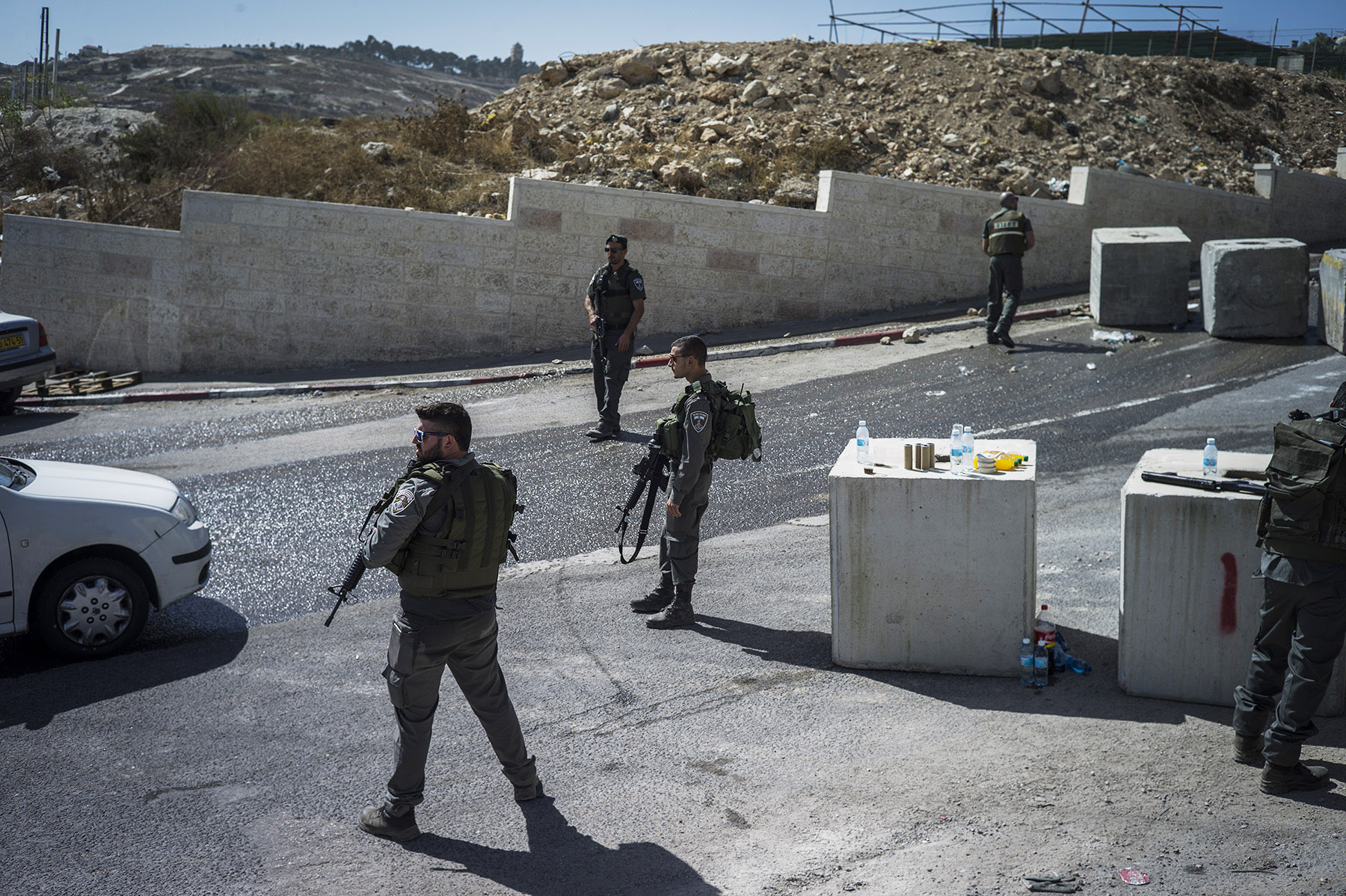
Correction appended, Oct. 23, 2015
Shalom Noam rushed out of the yeshiva where he studies in Jerusalem on Oct. 8 to see a violent commotion in the street.
“There was an attempted stabbing,” said Noam, a New Jersey native who came to study in Israel after he finished high school. “Then about an hour later a terrorist tried to run over someone with his car.”
These violent clashes involving Israelis and Palestinians have been unfolding daily in Jerusalem and beyond over the past several weeks. And while many young Americans like Noam who are studying or traveling in Israel—or are planning to leave on trips this fall and winter—are not dissuaded by the recent uptick in attacks, their families in the U.S. tend to worry more about what they read and see on the news. Noam’s mother is “kind of scared” and tells him to travel in groups of people and carry pepper spray, he told TIME from an alley of Jerusalem restaurants and bars frequented by Americans where he spent the evening with friends.
Lately, that stretch of buildings has been quieter at night, said Dor Cohen, who works at one of the pubs.
“For two or three weeks now, the streets are like this, more empty. People are afraid to walk in Jerusalem,” Cohen said. “It’s not just in the north or in the south, or on the borders—the war is everywhere.”
Nearby, Jonah Glick-Unterman and a group of Americans bought sandwiches and hung out in Zion Square. Glick-Unterman, who is spending the year in Jerusalem studying Jewish history before he starts college, said his parents are a little worried about the violence, but his program has “really intense security.”
“If anything, the situation makes me more proud to be a Jew and more proud to identify with Israel,” Glick-Unterman said, “because it shows how resilient we are in the face of violence.”
The number of young Americans in Israel will spike significantly when Birthright Israel begins its winter season of free 10-day trips to Israel, which will bring 16,000 young Jews from around the world to the country. Those trips will go forward as planned, said Noa Bauer, vice president for international marketing at Taglit-Birthright Israel, in an email to TIME.
In the meantime, Birthright has added an extra security guide to each of the two Birthright trips currently in Israel, in addition to the standard Israeli security escort, trained medic and two staff members who accompany all the trips. No one in the current Birthright groups has expressed interest in leaving the country early, and the participants feel “great, comfortable and safe,” Bauer added.
But Birthright organizers understand that parents of the 18-to-26-year-olds on the trips may be increasingly concerned about safety, and the program’s leaders assess the safety of each group’s itinerary every day.
“We encourage them to contact their parents more often than usual,” Bauer said of the trips’ participants. “We have learned that parents prefer to hear firsthand from their children than speak with a staff person if they have any concerns.”
Last summer, airstrikes in Israel and a U.S. travel advisory led a third of the Birthright participants who hadn’t yet left to cancel their reservations in advance. But so far this fall, no students have asked for their deposits back for the Birthright trip scheduled by New York University Bronfman Center, according to Rabbi Yehuda Sarna. At Pennsylvania State University, the winter Birthright trips already have 50 students registered, which is more than usual.
“Everything is going to go as planned, despite what’s happening over there. We’re really excited about it,” said Hannah Giterman, community engagement associate at the Penn State Hillel. “We haven’t had much concern from students or parents.”
Lauren Sobol, 24, who works as a healthcare analyst, is eager to attend Birthright in December, though the violence has made her nervous.
“My parents say that if it gets worse then I can’t go—or I shouldn’t go. But they also say that it’s Israel and they do an extra-good job of keeping foreigners safe there,” Sobol said. “They’ll still trust me going, but of course I have to stay in touch. But with Wi-Fi and phones nowadays, it’s so easy while you’re over there.”
Josh Nachlis, 19, is going on a trip with the University of Delaware Hillel, and the violence hasn’t affected him. “I feel completely safe going to Israel,” Nachlis said. He also talked with his family about the situation last weekend, and said they all agree that the area is “just as safe as it has been.”
Giterman, from Penn State Hillel, said instability is part of the reality of Israel, and important to the Birthright learning experience.
“This is life in Israel,” Giterman said. “This is something Jewish-Americans should experience and understand and learn about.”
Rebecca Collard contributed reporting from Jerusalem
Correction: The original version of the story misidentified the organization that runs trips for young Jews to Israel. It is Birthright Israel.
More Must-Reads From TIME
- The 100 Most Influential People of 2024
- Coco Gauff Is Playing for Herself Now
- Scenes From Pro-Palestinian Encampments Across U.S. Universities
- 6 Compliments That Land Every Time
- If You're Dating Right Now , You're Brave: Column
- The AI That Could Heal a Divided Internet
- Fallout Is a Brilliant Model for the Future of Video Game Adaptations
- Want Weekly Recs on What to Watch, Read, and More? Sign Up for Worth Your Time
Write to Julia Zorthian at julia.zorthian@time.com